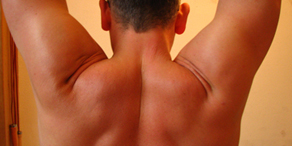What is a Herniated Disc?
Why are spinal discs so important? Often, in fact 80% of the time, back pain problems stem from the spinal discs. Discs are extremely important, because they play a central role with regard to the spine’s mobility as well as its stress capacity. Discs are what allow us to twist, turn, bend and move. They provide us with our flexibility, and also act as shock absorbers for the spine’s vertebrae.
How does a disc herniation occur and what are its symptoms? Under stress, the inner material of the disc may swell, pushing through its tough outer membrane. All or part of the disc’s core actually protrudes through that outer membrane which, in turn, causes pressure around the surrounding nerves. This can cause quite a bit of pain. Symptoms, however, vary depending on the location and the extent to which the disc material is protruding. Often times, the pain can cause difficulty walking. If the sciatic nerve is involved, pain in the thigh and lower leg may occur. Something as simple as a sneeze, for example, might send pain shooting down the leg into the calf and ankle area. Disc herniations most commonly target men under the age of 50. They almost always occur in the lumbar, or lower spine area. Very rarely (about 10% of the time) are herniated discs seen in the neck and shoulder area.


